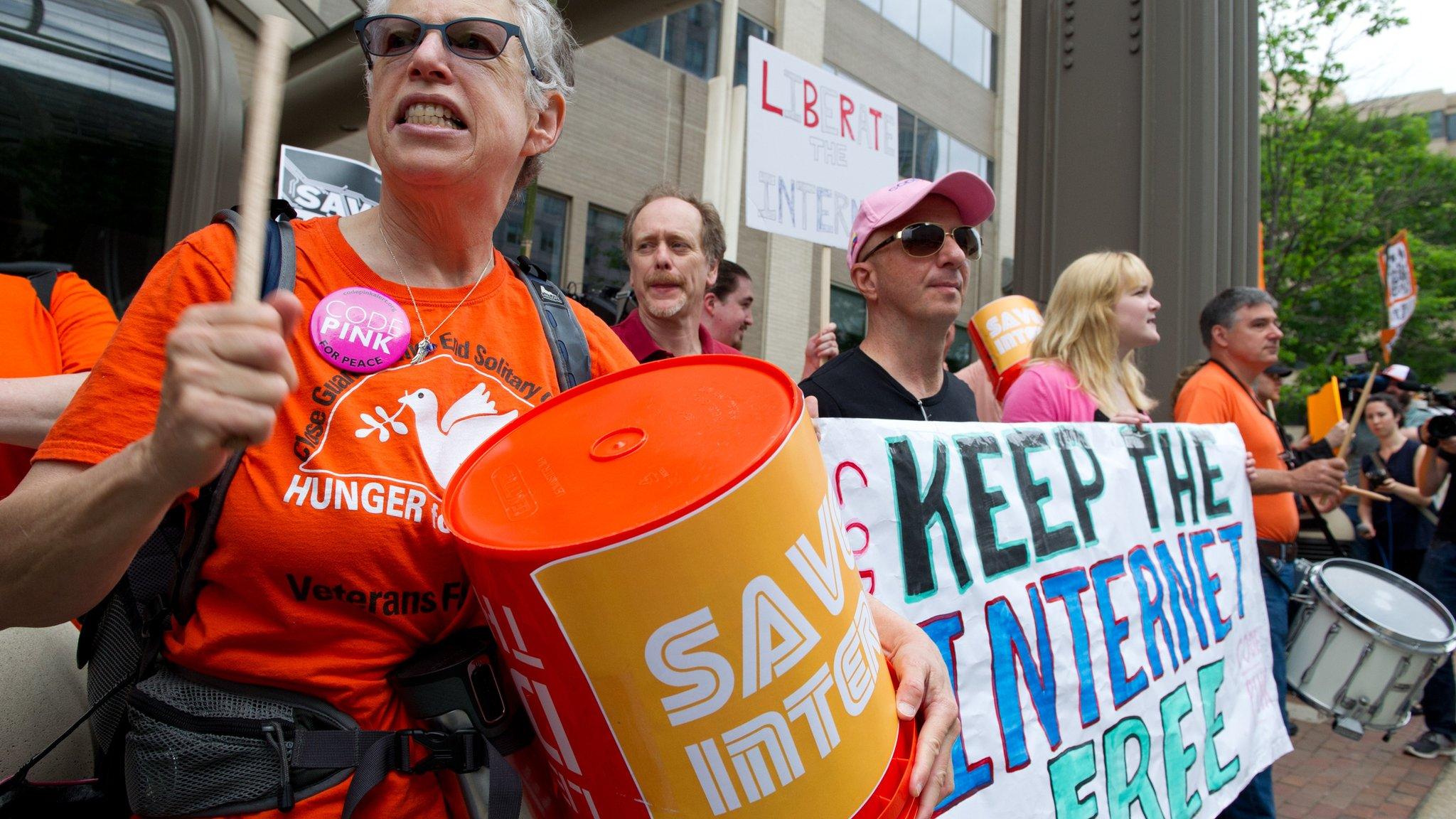Millions respond to debate on slow and fast net lanes
- Published

Should the internet have fast and slow lanes? ISPs think yes but content providers do not
More than three million comments, from consumers, companies and other groups, have been submitted to a controversial US debate on the future of the net.
The debate centres on a proposal to allow ISPs, such as Comcast and Verizon, to introduce so-called fast lanes which would deliver paid-for traffic to users more quickly and reliably.
Content providers and net advocate groups believe that would destroy the principle of net neutrality.
The debate closed on 15 September.
US regulation watchdog the Federal Communications Commission (FCC) is in charge of making the changes.
Devilish detail
It has been forced to rethink its existing net neutrality rules following a court case in January which ruled that ISP Verizon could charge to carry traffic from bandwidth-heavy services such as Netflix.
It was seen as a challenge to the powers of the FCC with some net advocacy groups calling for the watchdog to completely reclassify broadband from being an information service to a utility, giving it far stronger powers.
Instead the FCC favoured the idea of charging for different levels of internet access if ISPs meet a new standard of "commercial reasonableness" that will be judged on a case-by-case basis.
For their part, ISPs argue that they will not be able to invest in future bandwidth demands unless they are better able to make money from existing services.
"The devil will be in the detail. In the US, it is about what can be considered commercially reasonable," said Ovum analyst Matthew Howett.
"The possibility of 'fast lanes' remains a distinct possibility... but on the assumption that a 'basic' lane remains unaffected in an attempt to avoid a situation of 'haves' and 'have-nots'".
Last week, some high-profile net firms including Twitter and Netflix took part in an internet slowdown protest day and many previously signed a letter sent to the FCC expressing dismay at the proposed changes.
The FCC will mull over all the submissions before adopting new rules. Experts predict changes will be in place by the end of the year.
- Published10 September 2014

- Published14 May 2014
